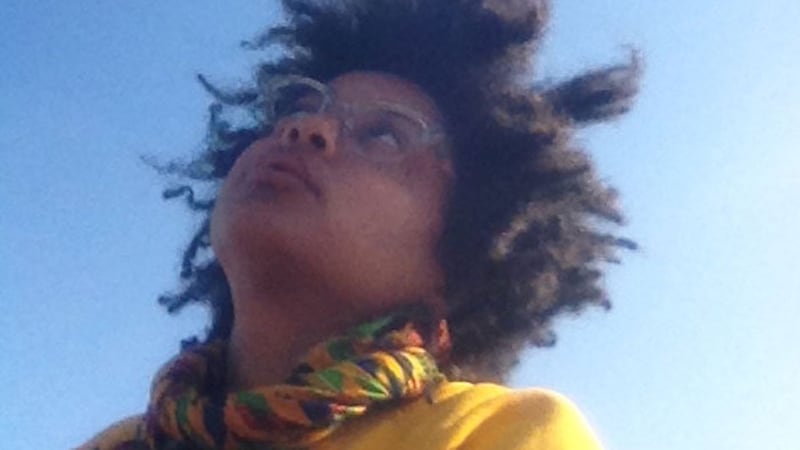Who: Vaughn Kimmons (vocals), Matthew Tomac (beats).
Sounds like: Sipping poppy tea with Truth on Mars.
For fans of: CocoRosie, Erykah Badu, Ashra Kwesi’s “The African Origin of Freemasonry.”
Vaughn Kimmons has stood out ever since she was a kid. In elementary school, a friend called her “weird” for listening to Fiona Apple, whose albums shared shelf space with early releases from No Doubt, Cake, Alanis Morissette—“things that people wouldn’t necessarily expect a little black girl to like,” as she puts it.
Then she discovered Erykah Badu.
“Baduizm came out when I was in eighth grade,” Kimmons says, “and it was like everything clicked. All of a sudden, I felt super-comfortable in my skin.”
Kimmons, who performs under the name Brown Alice, is a co-founder of Portland’s Y.G.B. art collective, a singer in both the Brazilian funk-samba group POPGoji and soul band Tribe Mars, and half of Brown Calculus, a “jazzy, intergalactic soul” project with Tribe Mars keyboardist Andre Burgos.
It may sound like a lot of juggling, but for Kimmons, this plurality of musical identities is how she maintains balance. Her voice is an airy alto gem, and her singing is a natural expression of the big imagination, slight nuttiness and personal history that is distinctly her.
With a pastor grandmother, a hippie mom who was “around a lot of Black Panthers growing up,” and a pierced, tatted, punk-leaning uncle, Kimmons was encouraged throughout childhood to explore the disparate facets of her own identity. It wasn’t until her move to Portland three years ago, though, that Kimmons’ confidence in her eclectic sense of self translated to having enough confidence to sing in public.
“Singing on my own used to make me so nervous,” she says, adding that gathering the courage to share her own music with people is a continuing process. “It’s just practice. And also, realizing that I shouldn’t try to sound like someone else.”
Kimmons might not be one for big volume, quick vocal runs or crazy ad-libs, but she doesn’t need to be. The emotive, historically reverent lo-fi of Brown Alice doesn’t fit perfectly into any stereotyped molds of black music, but that doesn’t make it any less an expression of blackness.
"That's the 'why,'" says Kimmons, "to show people the diversity and versatility of the black experience. That's my main goal."
Some of Brown Alice’s songs speak directly to Ausar and other ancient black gods of Kemet, while others struggle through young love. Whether explicitly socially engaged or not, Brown Alice’s purpose is innately political.
“I can’t say, ‘I believe that art should do this or that,’” Kimmons says. “But my grandmother was my pastor. And when I was nervous to sing in church, she would always say, ‘If you don’t use your voice, God will take it away.’” Isabel Zacharias.
SEE IT: Brown Alice plays Local Cut at Holocene, 1001 SE Morrison St., with Mic Capes, Ellis Pink and DJ Fritzwa, on Sunday, Dec. 18. 9 pm. Free. 21+.
